CROWDED LAND
OF LIBERTY
Solving Americas Immigration Crisis
BY DIRK CHASE ELDREDGE

Copyright 2001 by Dirk Chase Eldredge
All rights reserved under International and Pan-American Copyright Conventions. No part of this book may be reproduced in any form or by any electronic means, including information storage and retrieval systems, without written permission from the publisher, except by a reviewer who may quote brief passages in a review.
First Paperback Edition 2003
Published by Bridge Works Publishing Company,
Bridgehampton, New York,
a member of the Rowman & Littlefield Publishing Group
Distributed in the United States by National Book Network,
Lanham, Maryland. For descriptions of this and other Bridge Works books,
visit the National Book Network website at www.nbnbooks.com .
Library of Congress Cataloging-in-Publication Data
Eldredge, Dirk Chase, 1932
Crowded land of liberty : solving Americas immigration crisis / by Dirk Chase Eldredge.1st North American ed.
p. cm.
Includes bibliographical references and index.
ISBN 978-1-882593-67-5
1. United StatesEmigration and immigration
Government policy. I. Title.
JV6483.B53 2001
325.73dc21
2001037771
 The paper used in this publication meets the minimum requirements
The paper used in this publication meets the minimum requirements
of American National Standard for Information SciencesPermanence of
Paper for Printed Library Materials, ANSI/NISO Z39.48-1992.
Manufactured in the United States of America.
DEDICATION

This book is dedicated to Majken (Mickey) Johnson who has been my mother since I was nine. From that day to this, she has warmly welcomed me as her son and provided all the love, guidance, and support anyone could ask for.
This dedication comes with deep respect, love, and appreciation for all she has done for me.
CONTENTS

AUTHORS PREFACE

In the course of its history, the United States has developed a vibrant, variegated population unlike any other country on earth. From our earliest immigrants, refugees from the British Isles who began arriving in America in 1607 to our latest, Cambodians and Senegalese, our nation has embraced and, in spite of instances of xenophobia, found room for all.
Descendants of the early Anglo-Saxons were augmented by northern and eastern Europeans. Accidents of history gave us the Irish beset by the 1840s potato famine and European Jews fleeing religious persecution. Today these Caucasian elements comprise seventy-two percent of our population.
Shamefully, most African-Americans and Blacks from the Caribbean and South America came here as slaves. But since 1868, when the Fourteenth Amendment to the Constitution of the United States granted Blacks full citizenship, our efforts to elevate this concept into real equality, though still marred by lingering racial prejudice, have produced heartening progress. Black Americans now comprise twelve percent of the population.
Asian-Americans (four percent of the population) first came in significant numbers from China as cheap labor needed to work Californias gold mines and help build the transcontinental railroad. Legislation and popular prejudice caused citizenship to be severely restricted from 1882 until the late 1940s. But with three decades (1970s to the 1990s) of dramatic increases in Asian immigration, Asian-Americans have demonstrated their broad range of skills and entrepreneurship. Intermarriage is common, particularly among the Japanese, who marry outside their race about fifty percent of the time.
Hispanics mostly from Mexico but amplified by many from Central and South America as well as the islands of the Caribbean make up an energetic, motivated eleven percent of the American mixture. Intermarriage outside their group is also common, and currently between one-third and one-half of Hispanics marry members of other ethnic groups. The remaining one percent of our population consists of Native Americans and a fast-growing, mostly highly educated contingent from India and other near-eastern countries.
This, then, is America, a unique, inclusive blend of many races and cultures. We are, as we proudly tell the world, a nation of immigrants. Yet, it is obvious that recent immigration policies have brought crisis upon us, both physical and psychic, that previously did not exist. While we can readily acknowledge that immigration has played a priceless role in our countrys childhood and adolescence, we are now a mature nation. Just as an individuals behavior, suitable during youth, may no longer be appropriate as an adult, our established nation now has different prerogatives and goals from its earlier years. As James Reston, the late, great New York Times columnist wrote, The history of mankind is strewn with habits, creeds, and dogmas that were essential in one age and disastrous in another.
Uninterrupted economic growth is one of those creeds that has been a major cause of uninhibited immigration. From our agrarian beginnings, we have become a nation of cities, where most immigrants now cluster in unprecedented numbers, instead of spreading themselves evenly over our landscape. The problems of urban overcrowding and social friction are a recipe for endless, unnecessary civil strife, if not, ultimately, violence. When we ask ourselves, What is our objective in bringing this crisis to our nation? we find no answer. And why? Because immigration policies that brought about the status quo simply evolved with no plan or purpose.
Our unrelenting pursuit of economic growth has driven us to accept more and more immigrants. Worshiping at the altar of economic expansion has required ever more immigration acolytes. We need to learn there are more effective ways to improve our quality of life than by seeking the continuous, straight-line economic growth that has been Americas Holy Grail. We need a nobler purpose than simply making more money than our parents. We must recognize that our country needs some breathing room. Where once we had vast open spaces to conquer and virgin prairies to till, we now have an unprecedented volume of urban newcomers, some with high fertility rates.
I reject any suggestion that I am racist, bigoted, or anti-immigrant. As one whose de facto mother from the age of nine is a wonderfully nurturing, Swedish immigrant, and who shares three of his grandchildren with their other grandfather of Japanese lineage, I say the United States needs no apologists for its population. But I am greatly disaffected by the present immigration policies of the United States. They are without thought or objective and do not serve our mature nations needs. This books purpose is to take an unflinching look at these ailing policies and propose constructive remedies.
D.C.E.
CROWDED LAND
OF LIBERTY
In an avalanche, each unique,
beautiful snowflake pleads not guilty.
BENJAMIN ZUCKERMAN,
U.C.L.A. astronomer and environmentalist
1



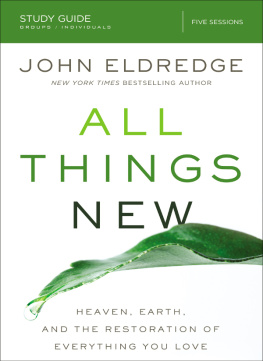

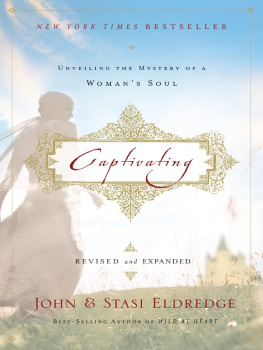
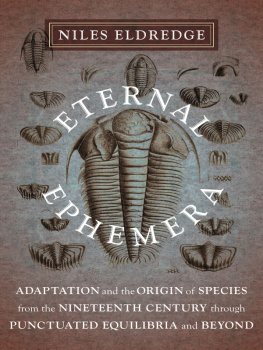

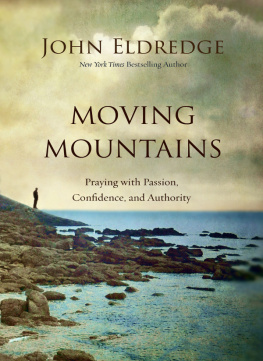

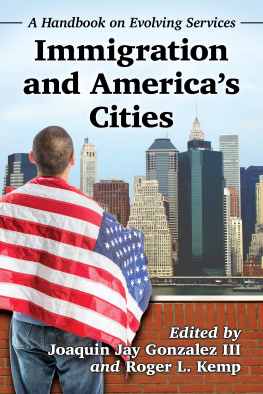
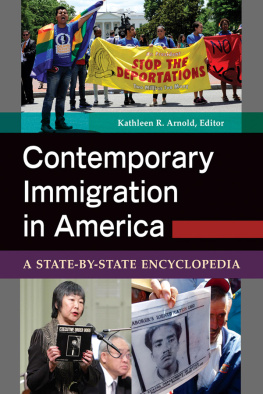
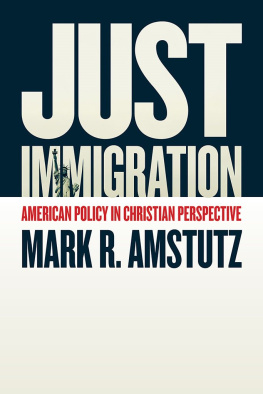
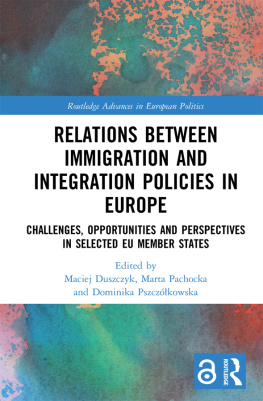
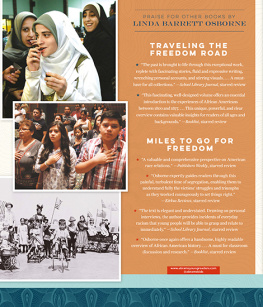
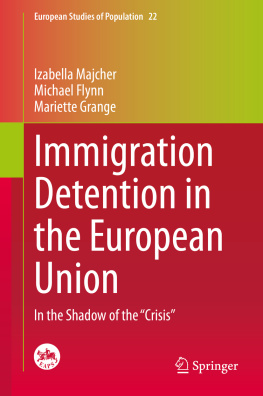
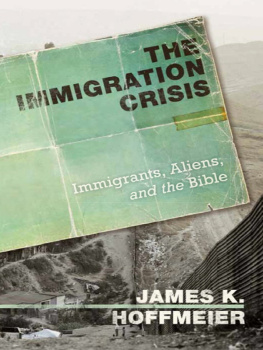
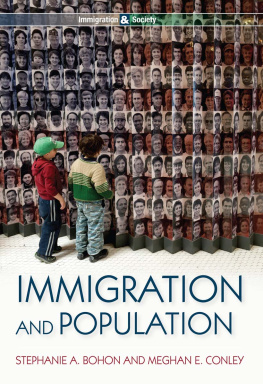
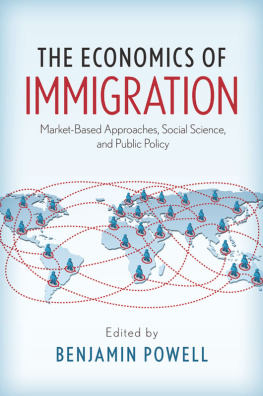

 The paper used in this publication meets the minimum requirements
The paper used in this publication meets the minimum requirements